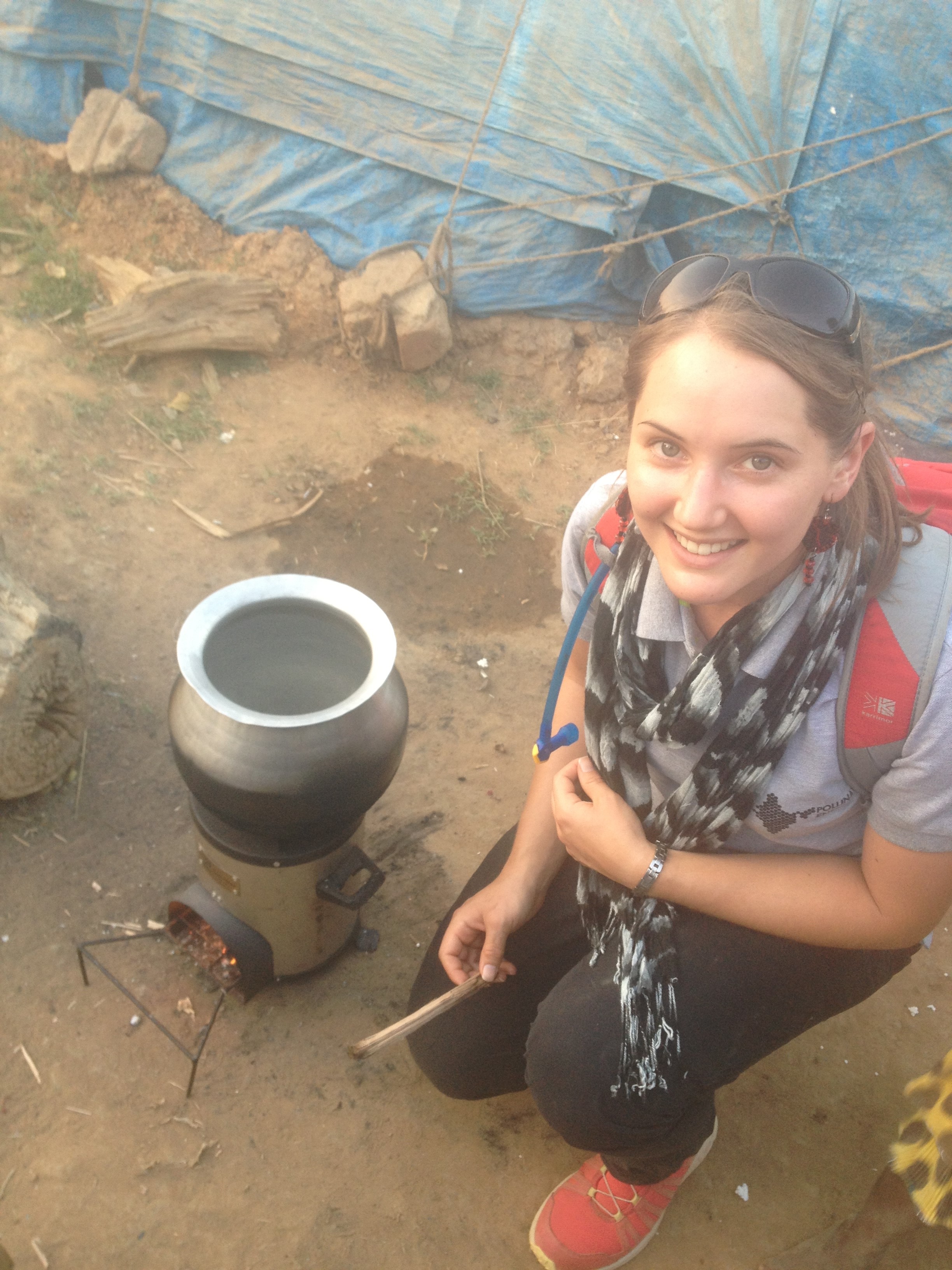Samantha Passmore, Clare College, 2014-2015
Samantha is originally from Perth in Australia, and obtained a dual degree, Bachelors of Engineering (Materials) and Science (Chemistry) with first class honours from the University of Queensland in Brisbane. Following her undergraduate degree Samantha worked with AECOM, a global consulting firm, in both Materials Engineering and Project Engineering roles. As a Materials Engineer her focus was on prolonging the life of structures by determining the root causes of materials deterioration, and then recommending rehabilitation measures as part of the development of an asset management plan. As a project engineer Sam worked on a wide variety of projects, with the most relevant being the Aboriginals Benefit Account stores infrastructure programme in Indigenous communities across the North Territory. This was Sam’s first taste of development engineering, and the complex challenges in these communities led her to volunteer in India with Pollinate Energy, and subsequently follow a career in development engineering.
Dissertation title:
Pathways to a Business Model for Water, Sanitation, and Hygiene Education Services: A Case Study in Honduras
Sam chose this topic as financial sustainability is a key issue for many international development aid initiatives, and she wanted to investigate the viability of converting charities to social businesses.
Student's report:
After working with Indigenous communities in Australia, and volunteering with a social business in India, I decided that I enjoyed the challenges and rewards that development presents, as they are so unique to both development and individual communities. I did the ESD MPhil to shift my career path to one in international development. This MPhil offered the flexibility for me to brush up on technical knowledge, as well as to learn about engineering in the bigger picture, including the unintended consequences of development and how to mitigate for the unknown unknowns.
The MPhil was extremely useful in two main ways. The first, and most important, was expanding my knowledge of the common situations in development – the varying extents of corruption, the expansiveness of gender issues, and potential motivations of donors are examples of issues that are just not discussed in a normal engineering degree, but directly relate to the effectiveness of our solutions. The second was the networking, both with experienced experts in all the topics I care about, and with my classmates – all of whom were awesome, and one of whom provided the connection which helped me secure the ideal job for my career shift!
I am now working for a UK-based international development consultancy, IMC Worldwide, on the Schools Reconstruction and Rehabilitation Programme in Pakistan, funded primarily by the Department for International Development UK. This programme will construct new classrooms and rehabilitate existing classrooms in over 2,000 schools! I am based in Islamabad in my role as the Infrastructure Coordinator, which means I do a bit of programme management as well as facilitating coordination between our infrastructure, capacity building, community development, and monitoring and evaluation teams. I also work with a fellow ESD’er from two years before me. The programme has all the normal challenges of development, and more due to its size!

